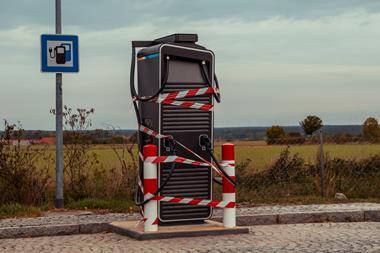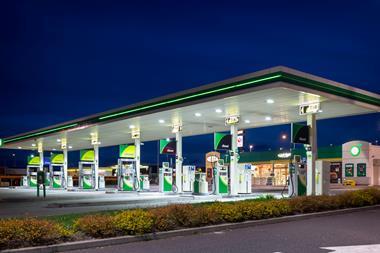MANY (MANY!) YEARS AGO when I first started out in business, I can remember discussing politics with my friend’s father, a local businessman who had done very well for himself and was now preparing for retirement. ‘Interesting thing, politics,’ he said. ‘In my experience it’s the unions that do well out of the Tories but it’s big business that does well out of a Labour government.’
NOW, OF COURSE, this was pre-Maggie days, so the first part of his theory did take a bit of a bashing in the 80s but I would have to say that New Labour are certainly doing their bit for big business. In the old days big business meant landowners, news barons and the brewers. These days you could add super-retailers to the list. I’m not quite sure how much dominance Tesco will have to exert over the market before questions are asked, but it’s pretty obvious from the OFT waving through the Adminstore takeover that it hasn’t reached that point yet. The analysts, however, do seem to have drawn a crumb of comfort from the suggestion that the OFT may not be quite as certain of their assertion that the convenience market and the general grocery market are two distinct categories, which is the basis of their green-flagging the recent rapid expansion into the c-store market by the hypers.
NOW I’M NO EXPERT with a string of fancy business degrees, but it seems pretty obvious to me that while the hypers enjoy massive buying power that gives them a huge edge when they venture into the c-store sector, the weekly shop and top-up shopping are definitely two distinct markets. Thank goodness they are. If the hypers have destroyed our fuel margins we must at least acknowledge that they have fuelled the growth of the forecourt shop. How alarmed should we be at the prospect of Tesco Express et al popping up all over?
WITH MANY OF THE HYPERS opening 24 hours, and most of us now living within a 10 minute drive of one of their retailing temples, it isn’t exactly inconvenient to do your top-up shopping at a hyper rather than a c-store? So why don’t we? We don’t because we’re cash rich and time poor. A visit to a hyper takes too long for a bottle of milk and a loaf of bread. Partly because of car parking, partly because of how far you have to walk inside the store, but mainly because it can take 15 minutes to get through a check-out! When it really comes down to it, the hypers are good at many things but REALLY considering their customers doesn’t appear to be one of their top priorities.
I’M NOT PRETENDING that if a Tesco Express opens up 300 yards away it’s a reason to celebrate. But if it’s two miles away and busy, there’s no reason to commit suicide just yet. Yes you will be more expensive. Yes you might not have quite the range of fresh products that they have. But yes, you are running your own store and you know your local community better than a central-office buyer. And yes, you should have more enthusiasm than a manager working for a big employer. And, yes, you will make sure the speed of customer turnaround is one of your highest priorities.
IRONICALLY, NO SOONER have the hypers caught the c-store bug than the government starts to do a u-turn over banning future out-of-town developments. Wearing our shopkeepers’ hat, the proposed relaxations in the planning regulations should be seen by us as good news. Proportionately it takes a great deal more management time to run a c-store rather than a hyper – if the return on capital employed is also much lower then why bother with that sector if you are free to expand on the hyper side?
SO, ON THE FACE OF IT, no big disasters in Prudence’s Budget. Most welcome was that the change in LPG duty was fairly minimal, and nothing like the 10 or 12p forecasted by some of the experts. Perhaps BP will now consider it worthwhile to resume their LPG installation programme. Although if they still reckon it takes 10 years at current duty rates to recoup their money, perhaps they had better appoint someone else to approve their installation costings!



























No comments yet